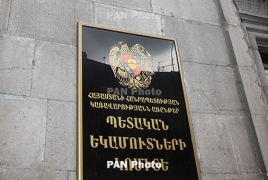
A new tax accounting system, implemented by the State Revenue Committee (SRC) on January 1, 2025, has simplified the process of tracking tax obligations and debit amounts.
According to the SRC, refundable VAT and excise tax amounts arising from tax calculations will now be classified as either "risky" or "non-risky" based on government-defined criteria.
Non-risky debit amounts will be automatically credited to a taxpayer's unified account without requiring a formal request. Additionally, the tax authority will no longer need to conduct extra reviews. If a taxpayer marks the relevant option in the newly added "Repayment/Refund" section of their personal account, the amount will be transferred to their unified account by the due date. The funds can then be used for settling other tax obligations. However, if the amount is classified as risky under government criteria, its transfer to the unified account will only occur after a review is conducted based on a taxpayer's formal request.
The rules for VAT deductions on goods imported from the Eurasian Economic Union (EAEU) have also changed. However, VAT calculation, payment procedures, and tax declaration deadlines remain unchanged. Starting January 1, 2025, VAT deductions on imported goods can be applied in the same month as the import, provided that both the import tax declaration is submitted and the VAT is paid within that period. If a taxpayer fails to meet these requirements in the month of import, they can still apply for the VAT deduction in the following month—provided they pay the VAT and submit the declaration by the 20th of that month.
These changes aim to accelerate the refund process for non-risky debit amounts, enabling businesses to manage their financial flows and time more efficiently.

